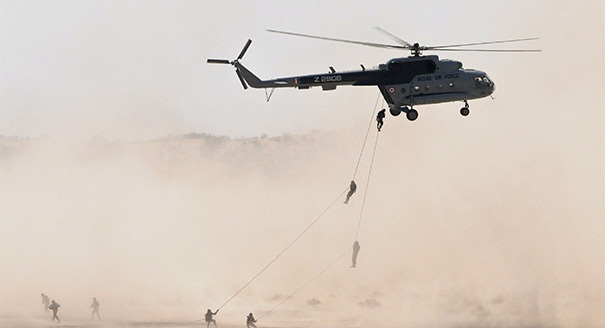Source: Force
Over the last few decades, the Indian government conducted dozens of emergency operations to protect and evacuate its distressed citizens abroad. When the lives and assets of overseas Indians are threatened due to war, natural calamities or discriminatory policies, New Delhi is expected to act swiftly and decisively.
As the Indian Diaspora grows in size, dispersion and complexity, and areas of major concentration like the Gulf region witness large-scale destabilisation, the government will have to expand its capacity and expertise to execute such missions. Most importantly, these missions cannot remain an almost exclusively civilian prerogative. While the ministry of external affairs (MEA) will continue to play a lead role, the Indian military must be roped in as a key stakeholder.
To ensure the safety of Indians abroad, the Indian armed forces will have to develop specific doctrines, procedures and capabilities to deploy expeditionary forces in coordination with civilian authorities. Especially in hostile and conflict environments, the Indian military will have to be prepared to use lethal power, including Special Forces, to protect and extricate emigrants....





